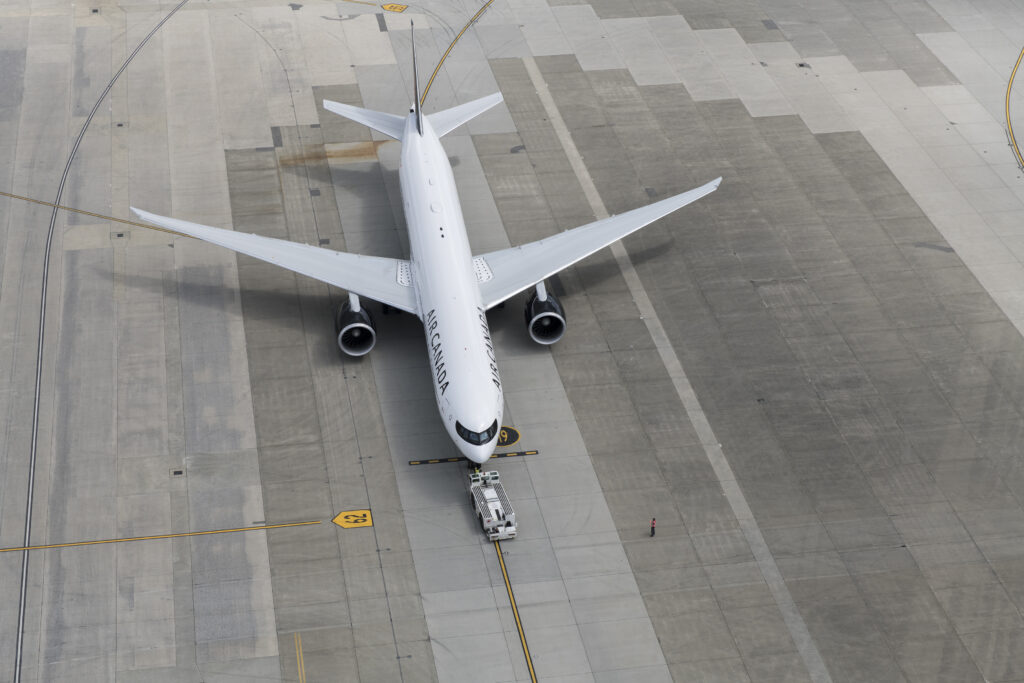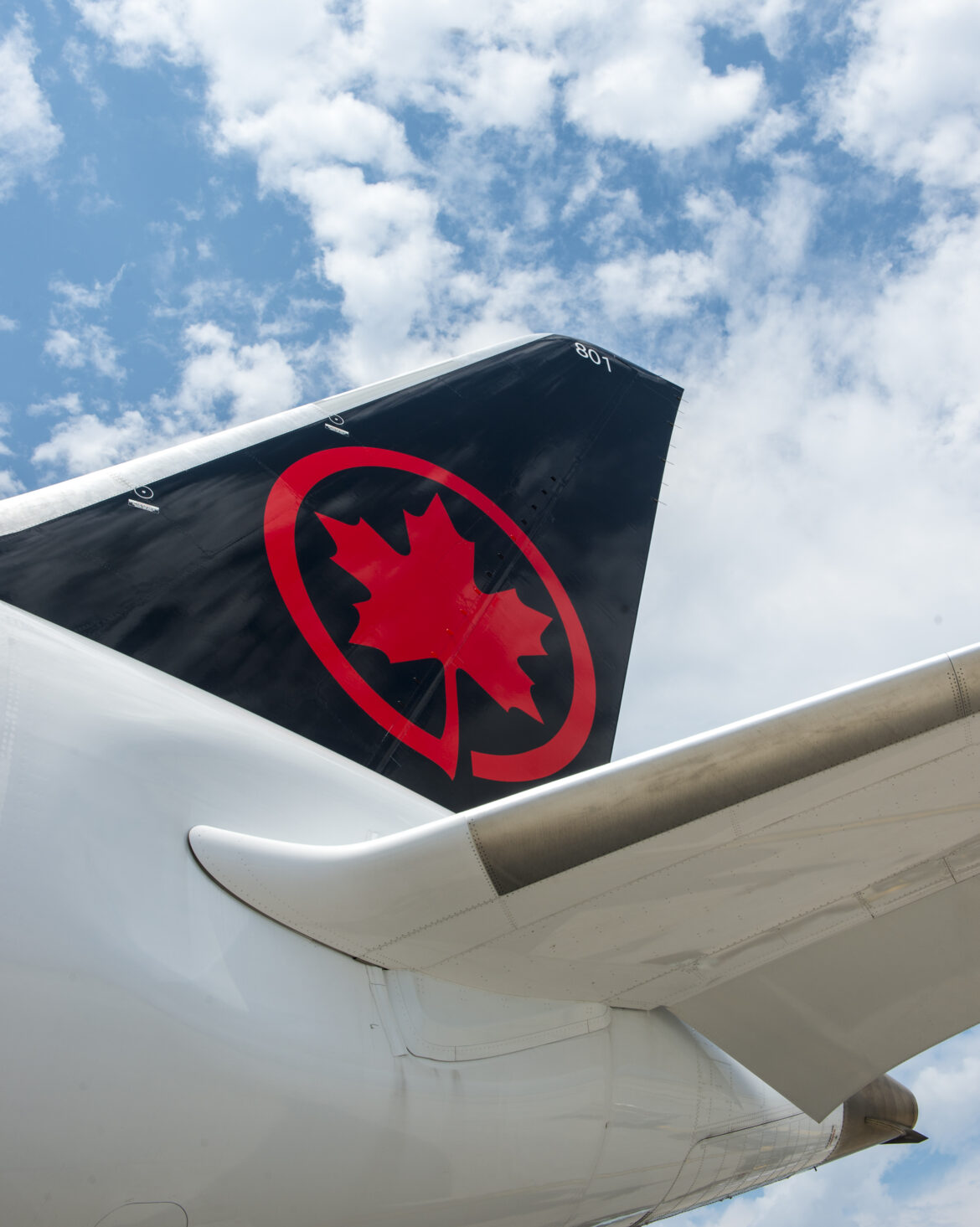Advertiser & Editorial Disclosure: The Bulkhead Seat earns an affiliate commission for anyone approved through the links below. This compensation may impact how and where links appear on this site. We work to provide the best publicly available offers to our readers. We frequently update them, but this site does not include all available offers. Opinions, reviews, analyses & recommendations are the author’s alone, and have not been reviewed, endorsed, or approved by any of these entities.
Air Canada is getting ready to resume flights today after a government order ended the crippling work stoppage that grounded the airline’s entire operations for more than 24 hours. The shutdown followed a bitter contract dispute between Air Canada’s management and the Canadian Union of Public Employees (CUPE), which represents the airline’s flight attendants. After CUPE issued a strike warning, management responded with a lockout warning. This prompted the cancellation of all Air Canada and Air Canada Rouge flights on Saturday.
Canada’s Minister of Jobs and Families, Patty Hajdu, invoked section 107 of the Canada Labour Code. This compels both parties into final binding arbitration that is overseen by the Canadian Industrial Relations Board (CIRB). Hajdu said she was acting “because it is critical to maintaining and securing industrial peace, protecting Canadians and promoting conditions to resolve the dispute.” The CIRB’s directive requires Air Canada to resume operations and for all flight attendants to return to work by 2:00 PM EDT today August 17th. The previous collective agreement, which expired March 31st, has been extended until a date when a new deal is finalized through arbitration.
The flight attendants’ union strongly opposes the government’s intervention and argues that binding arbitration undermines union democracy by eliminating the membership’s right to vote on a new contract. CUPE criticized the government for “rewarding Air Canada’s refusal to negotiate fairly by giving them exactly what they wanted.” The union also warned that this move sets a dangerous precedent for future labor disputes.

Air Canada will begin gradually restoring flights around 2:00 PM EDT. Aircraft and crews are displaced following the shutdown at 1:30 AM EDT yesterday, August 16th. The airline’s full operations will not resume immediately. It expects that it will take seven to ten days to stabilize its schedule. Passengers should expect some additional cancellations this week.
Air Canada said it “deeply regrets the inconvenience” caused to its customers. More than 700 flights were canceled during the brief, but disruptive stoppage. The CIRB will now oversee the arbitration process to settle outstanding terms of the collective agreement. While the government’s intervention has ended the immediate disruption, the dispute highlights ongoing tensions between Air Canada management and its flight attendants.
As I wrote about earlier this week, here is what the two sides said got them to this point:
Air Canada:
- Flight attendants were offered a 38% total increase over four years (including 25% in year one), plus improvements to pensions, benefits, and crew rest.
- Introduced ground pay for boarding (though at 50% of the normal hourly rate).
- It has accused CUPE of wasting 10 days of bargaining by refusing talks during the strike mandate vote.
- Air Canada also proposed binding third-party arbitration to resolve the dispute, which CUPE rejected.
- It says the union’s demands amount to “exorbitant” raises.
- This proposal would make Air Canada flight attendants the highest paid in Canada.
Canadian Union of Public Employees (CUPE):
- It says that real wage growth under the proposal would be only 17% over four years and 8% in year one (while inflation has eroded wages by 9%).
- Boarding pay is partial and excludes medical emergencies, fires, evacuations, and other safety and security ground duties.
- CUPE rejects arbitration and claims that arbitrators tend to maintain the status quo, which the union seeks to change.
- It also says it was always open to negotiations and that the airline failed to reach out during the strike vote period.
- It insists its demands are “fair” and affordable given Air Canada’s financial health.
Anthony’s Take: There is still a lot that CUPE and Air Canada management need to align on to move this forward. At least passengers will not be left without flights (although it will take some time to get operations back to normal).
(Image Credits: Air Canada.)
User Generated Content Disclosure: The Bulkhead Seat encourages constructive discussions, comments, and questions. Responses are not provided by or commissioned by any bank advertisers. These responses have not been reviewed, approved, or endorsed by the bank advertiser. It is not the responsibility of the bank advertiser to respond to comments.
Advertiser & Editorial Disclosure: The Bulkhead Seat earns an affiliate commission for anyone approved through the links above This compensation may impact how and where links appear on this site. We work to provide the best publicly available offers to our readers. We frequently update them, but this site does not include all available offers. Opinions, reviews, analyses & recommendations are the author’s alone, and have not been reviewed, endorsed, or approved by any of these entities.
